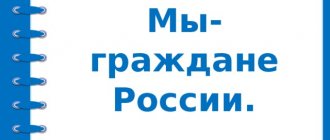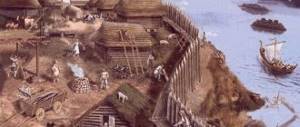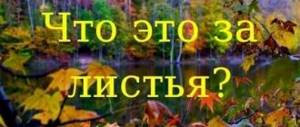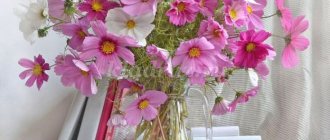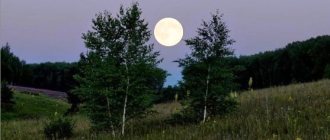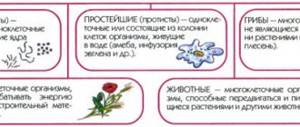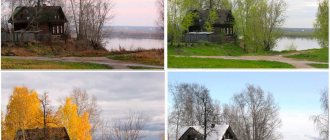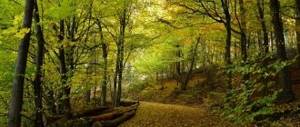Project “Love and know your native land”
A person cannot live without his homeland, just as he cannot live without a heart.
K. Paustovsky
Motherland, Fatherland... The roots of these words contain images close to everyone: mother and father, parents, those who give life to a new being. Cultivating a sense of patriotism is a complex and lengthy process. Love for loved ones, for school, for one’s hometown and home country play a huge role in the development of a person.
In recent years, there has been a rethinking of the essence of patriotic education: the idea of cultivating patriotism and citizenship, acquiring increasing social significance, is becoming a task of national importance. Modern researchers consider the national-regional component as a fundamental factor in the integration of social and pedagogical conditions in the patriotic and civic education of the younger generation. At the same time, the emphasis is on nurturing love for one’s home, nature, and the culture of the small Motherland.
Acquaintance with our native land: with historical, cultural, national, geographical, natural features forms in us, schoolchildren, such character traits that will help us become patriots of our Motherland. After all, vivid impressions of one’s native nature and the history of one’s native land, received in childhood, often remain in a person’s memory for the rest of his life.
The poet Konstantin Simonov writes in his poem “Motherland”:
“You don’t remember a big country that you traveled and got to know.
You remember the Motherland as you saw it as a child" [2, 115]
And indeed, no matter how great our country is, a person connects his feeling of love for it with the places where he was born and raised; with a street that I have walked along more than once; with the yard where I planted the first tree.
The task of cultivating a sense of patriotism and love for the small Motherland is traditionally solved in every educational institution, but despite this it is necessary to strengthen the work in this direction and fill it with new content. I propose to create a project “Love and know your native land!” This project can be implemented in every region.
I believe that this project will allow us, school students, to learn complex local history material through a joint search for a solution to the problem, thereby making the cognitive process interesting and motivational.
Objective of the project:
Nurturing civic feelings, feelings of love for the Motherland, native land; development of abilities for practical and mental experimentation, speech planning.
Project objectives:
expand knowledge about your hometown: history, symbols, attractions, industrial facilities, their harm and benefits, the environmental situation in the city and the republic;
get acquainted with the names of those who founded and glorified the city and the republic;
expand knowledge about the flora and fauna of the Republic of Khakassia;
to cultivate love for one’s hometown, region, the ability to see beauty and be proud of it;
get acquainted with the culture and traditions of the Republic of Khakassia;
to form an environmental culture among us, schoolchildren, and our parents, a desire to take part in environmental protection activities.
Subject of research: Khakassia region
Participants: school students (grades 1–11), parents of students, school teachers.
Implementation timeframe: within a year.
Main section of the program: cognitive development
Sections of the program, the content of which is included in the project: speech development, visual activities, gaming activities, musical activities, classes to familiarize themselves with the outside world, etc. etc.
Expected result:
- The final result is a diagnosis, where we, schoolchildren, will show our knowledge. Our active participation in exhibitions, competitions, sports and patriotic events, discussions, literary and musical compositions, and mini-performances is also taken into account.
- The ability to express one’s own opinion, analyze, react quickly to what is happening, and provide all possible assistance.
- Mastering accessible knowledge about the history of our native Fatherland.
- Present your knowledge in a creative report.
Main part
As I wrote earlier, this project can be implemented in any region of our country. For example, I will take my region, the Republic of Khakassia.
Every school has a senior council. Our school is no exception. Children from the high school student council will play a significant role in the implementation of the project.
Stages of carrying out and implementing the project.
I. Information-cumulative:
Studying the interest of schoolchildren to determine the goals of the project (at this stage, you can conduct a survey to identify knowledge about Khakassia).
Collection and analysis of literature for children.
Contacting specialists (museum workers, exhibition hall workers, tour guides, etc.).
At the very beginning of the project, a written survey is conducted, which will allow you to find out how much students know the history of their small homeland (see Appendix).
The implementation period for this stage is one month (September).
II. Organizational and practical:
Timing for the implementation of this stage (October - April).
This stage is presented in the form of a table that reflects all the events, their brief content, as well as the participants responsible for the events and the timing.
Table 1
| № | Name of the event | Content | Participants | Responsible _ | Deadlines |
| 1. | Conducting a series of educational classes on the topics: “The city of Abakan - past and present”, “My Motherland is Khakassia!” | These classes are conducted during class hours. Students get acquainted with Khakassia, learn the history of their native city, as well as the prospects for its development. | 1–8 grades | Council of high school students, class teachers, teacher-organizer, deputy director for VR. | October |
| 2. | Excursions Sights of Khakassia" | Each class team, if possible, visits significant places in Khakassia | grades 1–11 | Class teachers, parent committee | October |
| 3. | Design of the albums “Sights of Khakassia”, “Holidays of Khakassia”, “Red Book of Khakassia”, “Outstanding Personalities of Khakassia” | We paste photographs of a certain topic into these albums and comment on them. While working on this material, we learn a lot of interesting things about our region (the fauna of Khakassia, architectural and natural monuments, the history of their origin, and also get acquainted with the biography of people who made an invaluable contribution to the development of our region) | 3–11 grades | Council of high school students, class teachers, teacher-organizer, deputy director for VR. | October-April |
| 4. | Carrying out the games “Find out where I am?”, “Collect a picture” | These didactic games are conducted by children from the high school student council, as well as students in grades 9–11. We, high school students, develop the material for the games ourselves. At these games, primary school students must guess from a photograph the place in the city of Abakan where it is located. Also, students in grades 1–4 must assemble a picture, like a puzzle, depicting an architectural monument of their hometown. | 1–4 grades | Council of high school students, students of grades 9–11, teacher-organizer | November |
| 5. | Essay competition “City of the Future” | In their essays, the guys imagine how they see Abakan in a few years, what, in their opinion, should appear in our city. | 5–7 grades | Teacher organizer, teacher of Russian language and literature | November |
| 6. | Photo exhibition “Here is my street, here is my home.” | At first glance, it may seem that the theme of the exhibition is frivolous. But these photographs of the yard where they spent their childhood and youth are filled with love for their native place. | grades 1–11 | Organizing teacher, deputy director for VR, fine arts teacher | November December |
| 7. | Making the model "Khakassia" | For several months, students in grades 5–11 have been “modeling” Khakassia. You can create two layouts: the sights of the republic and the mineral resources of the republic. In advance, the guys are divided into sections: those who create a model of attractions and those who create a model of minerals. Each section is headed by a teacher. Together with the section leaders, students create a drawing, which will later help in making the model. This work helps in the future to navigate in space. | 5–11 grades | Technology teachers, class teachers, geography teachers, fine arts teachers, teacher-organizer, deputy director for VR | November-April |
| 8. | Making a mini-museum “House of Khakassia” | In the old days, the Khakass lived in yurts. Our task (the schoolchildren) is to reproduce not only the model of the yurt, but also how it is furnished and with what decorations. Under the guidance of teachers, we create copies of the things that decorated the yurts. To recreate such a yurt, we additionally read information on the history of Khakassia. | grades 1–11 | Organizing teacher, geography teacher, history teacher, technology teacher, fine arts teacher, deputy director for VR | November-April |
| 9. | Extracurricular activities on the topics “Khakassian folk costume”, “Folk dishes of Khakassia” | In additional lessons, students not only get acquainted with the costumes and food of the republic. But they also learn to cook such food themselves and try to sew costumes. | 5–7 grades | Technology teachers | November-April |
| 10 | Drawings "Khakassia" | The children independently choose what they will depict in their drawings. After their works are ready, they must defend them (tell what or who they depicted) | 3–4 grades | Class teachers, fine arts teachers | January |
| 11 | Modeling “Animals and birds of Khakassia” | Under the guidance of their class teachers, junior school children use plasticine to make representatives of the fauna of Khakassia. But in advance, during lessons, the children get acquainted with the animals that inhabit our region. | 1–2 grades | Class teachers | January |
| 12 | Round table “Ways of development of Khakassia” | At this event, the guys discuss the problems of the region and what ways they see to solve them. A week before the round table, students themselves choose a topic (ecology, tourism) | 9–11 grades, high school student council | Teacher organizer, deputy director for VR | February |
| 13 | Video clip competition in Khakassia | Each clip that we, as directors, make ourselves should not exceed five minutes. The themes of the video clips are presented in two directions: “Expanses of Khakassia” and “Favorite poem about Khakassia.” | 5–11 grades | Council of high school students, teacher-organizer, deputy director for VR, geography teachers, Russian language and literature teachers, fine arts teachers | February March |
| 14 | Reading competitions “Poets and writers about Khakassia” | Students submit for this competition a recitation of a poem or an excerpt from prose about Khakassia. The guys must “get used to” the role of the author, the lyrical hero, who are overwhelmed with a feeling of love for their native land. | 5–11 grades | School library worker, teacher of Russian language and literature, teacher-organizer, deputy director for VR | March |
| 15 | Preparation for master classes | Students must prepare master classes on the topics: “House of Khakassia” (tell the history of the yurt; how they (the guys) worked on this task), “Khakassian folk costume” (talk about the peculiarities of Khakassian clothing, describe your work), “Folk dishes of Khakassia "(share the secrets of cooking Khakassian food, treat guests), "Layout "Khakassia" (talk about working on the layouts). | 5–11 grades | Subject teachers, teacher-organizer, deputy director for VR | April May |
| 16 | Preparation for a literary and musical concert | We, the students, as well as literature and music teachers, must prepare a literary and musical composition about one poet of Khakassia. Not only an expressive poetry reading should be included, but also a mini-play about his childhood, etc. | Grades 5–11, teachers of Russian language and literature, music teachers | Organizing teacher, deputy director for VR, fine arts teachers, class teachers, teacher-choreographer | April May |
| 17 | Campaign “Let's make our city cleaner” | This event can be called a cleanup day, but together with our parents we clean parks, squares and other places of interest in our city. This work must be captured on camera. | Grades 1–11, parents of students | High school student council, parent committee, class teachers | April |
| 18 | Quest “Khakass stories” | This local history quest will introduce students in grades 7–8 to the history of Khakassia, teach them how to navigate on a map, and the children will also show their knowledge about the region. Each class forms a team of 5-6 people and receives a route sheet (thematic routes are “Toponymic”, “Architectural”). | 7th–8th grades | Library worker, geography teachers, class teachers, teacher-organizer, deputy director for VR | April |
III Presentation-final
Open creative report “Khakassia is my Motherland!”
Students and teachers from other schools in the city and the republic are invited to this creative report. This event consists of several stages.
Meeting with guests
Before the start of the plenary part, guests can look at the photographs that decorate the stand (“Excursions around Khakassia”, “Let’s make the city cleaner”, “Quest “Khakassian stories”, etc.), visit the mini-museum “House of Khakassia”, see the layout of “ Khakassia", look through the albums "Sights of Khakassia", "Holidays of Khakassia", "Red Book of Khakassia", "Outstanding Personalities of Khakassia", and also go to an exhibition of children's activities, where drawings and figures of animals and birds made of plasticine are presented.
Plenary part
The plenary part is allotted 45–60 minutes. A welcoming speech is given to the school director. The guys from the council of high school students will talk about the progress of work on the project “Love and Know Your Native Land” and the results of the round table conversation. The winners of the reading competition will also speak at the plenary part. In the final part, guests will see the best video clips about Khakassia.
Literary and musical concert
For this event you can take the work of any Khakass poet. For example, I’ll take the work of Mikhail Eremeevich Kilchichakov.
The main goal of this concert is to create conditions for demonstrating the creative abilities of students and adults. At a creative concert, most of the performances should consist of melodic recitations: participants read Kilchichakov’s poems to musical accompaniment. Not only school students, but also teachers take part in the concert. Songs based on poems by this poet should also be performed. Kilchichakov’s poetry is inseparable from his love for Khakassia, and the Khakassian dance, which we will prepare in advance, will help create a national flavor. The creative report must include a mini-play that reflects facts from the life of Mikhail Eremeevich. This concert should be emotional and intense.
Master classes
Of the four proposed master classes (“House of Khakassia”, “Model “Khakassia””, “Khakassian folk costume”, “Folk dishes of Khakassia”), each guest chooses one to attend. The duration of the master classes is 50 minutes. These events are led by students.
During pauses between events, guests can visit exhibitions of drawings, view photographs, photo albums, and during the lunch break try Khakassian national dishes.
Assessment of project implementation stages by guests
Upon completion of all activities, guests will be required to rate the project. To do this, each of them will receive a sheet where they can write their wishes, what they liked or didn’t like most about the organization of the project. Guests will also be given the opportunity to provide verbal feedback.
IV. Control-reflexive
Summarizing.
Conversation “What did we want to know, what did we learn, why did we learn?”
At the final stage of the project, each class team must discuss all stages of the project, express their wishes and answer in writing the question: “What did I want to know, what did I learn, why did I learn?” The High School Student Council processes the information received.
A survey is also conducted (a similar one is carried out at the beginning of the project), where students will demonstrate their knowledge about Khakassia after all stages of the project. The results of the survey are also processed by the guys from the high school student council.
Conclusion
As a result of the work done, ideas may arise about a long-term project on moral and patriotic education or the creation of a new project (for example, “Russia is my Motherland”).
Of course, the results of the survey conducted at the end of the project will be characterized by higher levels of knowledge about Khakassia.
The project can be used in any school, in any region of our country.
I really hope that I can implement my project that I have already developed. After all, the project “Love and Know Your Native Land” helps us, school students, to experience love and affection for our home, family, city, region; to feel pride and respect for your nation, Russian culture, language, traditions, to be proud of your people, their achievements, will teach you to admire nature and take care of national monuments. It’s not for nothing that they say: “The homeland begins in the heart.”
Literature:
- https://ru.wikipedia.org/
- Konstantin Simonov. World Library of Poetry. Rostov-on-Don, “Phoenix”, 1998
